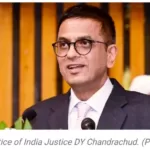India-American Republican presidential hopeful, Vivek Ramaswamy, has pledged to overhaul the H-1B visa program should he ascend to the highest office, describing it as “indentured servitude.” Ramaswamy, who availed the H-1B visa program a staggering 29 times between 2018 and 2023 to staff his former enterprise, Roivant Sciences, is advocating for a transition from the current lottery-based allocation system to a more meritocratic approach.
In a bold statement, Ramaswamy articulated, “The lottery system needs to be replaced by actual meritocratic admission. It’s a form of indentured servitude that only accrues to the benefit of the company that sponsored an H-1B immigrant. I’ll gut it.”
The H-1B visa program, a non-immigrant endeavor, empowers US-based companies to engage foreign workers with specialized skills, particularly those necessitating theoretical or technical expertise. This program has traditionally been employed by American IT firms to recruit talent from countries like China and India.
The H-1B program has been under intense scrutiny in the run-up to previous US Presidential elections, frequently criticized for potentially undercutting local talent by facilitating the hiring of foreign workers at reduced wage rates. During the Trump administration in June 2020, H-1B visas were suspended alongside other foreign work visas until the close of 2020, ostensibly to safeguard American workers during a pivotal election year.
Proposed reforms had aimed to narrow the definition of “speciality occupation” and compel companies to confirm that there were no local US workers available to fill H-1B positions. Additionally, a wage-based system was contemplated to replace the lottery system. However, these Trump-era reforms were subsequently withdrawn in 2021.
The H-1B visa program proffers numerous advantages to its beneficiaries, including wage parity with local peers, equivalent working conditions, and compensation for nonproductive periods due to licensing or permitting issues. For employers, it opens doors to a global pool of talent.
The repercussions of these proposed changes would significantly impact Indian nationals, as a substantial majority of the 85,000 annual H-1B work permits, comprising 65,000 for specialty occupations and 20,000 for foreign workers with advanced US degrees, are typically granted to Indians. In the 2022 fiscal year, Indians reportedly constituted a staggering 73% of the 4.42 lakh H-1B workers.
The transition toward a “merit-based” allocation system could potentially reduce the total number of annual visa approvals, posing a potential setback for aspiring Indian professionals aiming to pursue careers in the United States.







